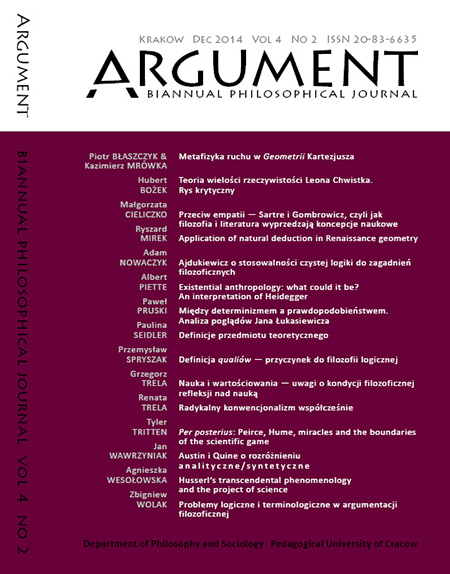Austin i Quine o rozróżnieniu analityczne / syntetyczne?
Słowa kluczowe:
John Langshaw Austin, Willard Van Orman Quine, analytic, synthetic, meaning, indeterminacy of translationAbstrakt
Austin and Quine on the analytic / synthetic distinction? Both John Langshaw Austin and Willard Van Orman Quine were critical of the traditional division of propositions into the two categories: analytic and synthetic. Their criticism has, however, a different character. Quine questions the usefulness of the notion of analyticity, whereas Austin does not accept the view that every proposition should be considered either analytic or synthetic. According to Quine, we have to abandon the notion of analyticity because we cannot define it in a satisfactory way. Quine’s criticism is based on his conviction that the very notion of meaning is suspicious from the scientific point of view. This general outlook is supported by arguments the point of which is to show that we cannot avoid an indeterminacy of translation. Austin criticises the distinction for different reasons. According to him, it is not the notion of meaning which is suspicious, but a certain model of this notion — a model which is based on false analogies. In my text, I compare these two approaches and point out that they have different metaphilosophical sources. The main difference lies in the fact that, according to Austin, statements about linguistic meaning usually have a descriptive character, whereas Quine claims that linguistic meanings are theoretical entities. In the last part of my article, I discuss the thesis of indeterminacy of translation and assess its credibility, as it plays a key role in Quine’s criticism of the notion of meaning.


